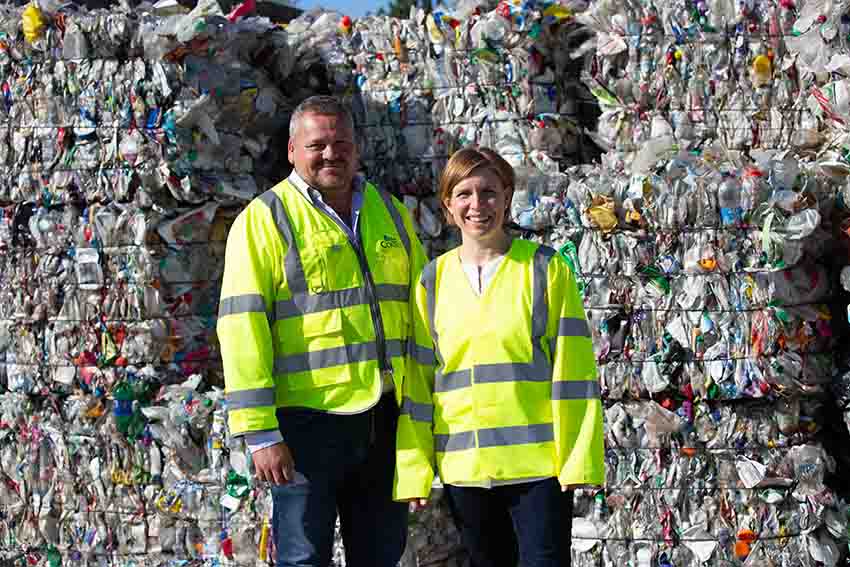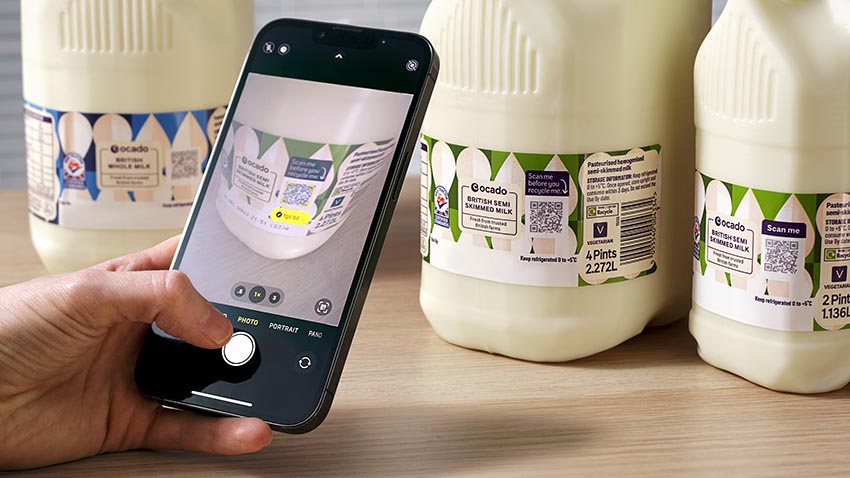Polytag is a pioneer in the recycling technology space, helping brands, retailers, legislators and consumers stop guessing and start knowing where their packaging is being recycled. The technology enables brands and retailers to describe, tag and trace packaging through the circular economy, affording key stakeholders never-before-seen packaging lifecycle data.
The two-part technology consists of serialised, GS1 approved, unique-every-time QR codes, retrofitted on standard plate printing systems, and UV 2D data matrices, which together, provide full visibility of packaging as it travels through the circular economy, via Polytag’s intuitive dashboard.
Interview with Alice Rackley, CEO of Polytag.
Easy Engineering: What are the main areas of activity of the company?
Alice Rackley: Polytag enables the packaging circular economy by providing easy access to information about packaging lifecycles and intuitive tools to optimise and incentivise recycling. Two key areas fall within the UK’s environmental legislation: Deposit Return Schemes (DRSs) and Extended Producer Responsibility (EPR)
Polytag is driving a Digital Deposit Return Scheme movement in the UK. A Digital DRS compared to the traditional return-to-retailer model, which requires consumers to transport their used packaging to a series of reverse vending machines (RVMs), enables consumers to redeem their deposits from the comfort of their own home using an intuitive smartphone app. This integration with the existing kerbside infrastructure, makes it more convenient, cheaper and less carbon intensive (due to not having to extensively install reverse vending machines), and is preferred by many brands and retailers. It is also predicted to increase recycling rates by offering consumers more choice when it comes to recycling.

Polytag is also providing digital tools to transform EPR in the UK, an important piece of legislation that puts the onus on manufacturers and producers to consider the whole lifecycle of a product, and thus, incentivising eco-friendly packaging production and recycling. Polytag’s Describe, Tag and Trace technology is applied to packaging during the production process, enabling businesses, governments and consumers to stop guessing and start knowing where and when packaging is produced and how much recycled materials it contains. Data from each tag applied to packaging is held in the cloud and is openly accessible thanks to GS1 standards. This means that not only will individual businesses be able to trace and account for their own product packaging, but both government and consumers will also see how brands are contributing to the circular packaging economy.
E.E: What’s the news about new products?
A.R: Polytag has partnered with two of the UK’s biggest retailers, Ocado Retail and the Co-op, in an effort to improve the nation’s recycling rates. During the partnership with Ocado Retail, for the first time ever, over 5m unique-every-time QR codes were printed onto the online retailer’s fully recyclable milk bottles enabling households to receive detailed recycling information and clear calls-to-action upon scanning the bottles with their smartphones. These QR codes, when printed at speed and at low-cost, demonstrated that a DDRS is viable, as they would theoretically enable households to redeem their deposits from home, as each code is serialised, held to GS1 standards, reducing the risk of fraud.
E.E: What are the ranges of products?
A.R: Polytag’s services can be roughly broken down into the following categories:
- A DDRS enabler;
- A tool to vastly improve the scope and efficiency of EPR by facilitating the accurate measuring and reporting of packaging post-consumption;
- Technology that provides easily accessible, never-before-seen data to access packaging lifecycle data in real-time;
- A direct-to-consumer marketing channel for brands to sell their sustainability strategies and educate on recycling habits.

E.E: At what stage is the market where you are currently active?
A.R: On 20th January, the UK Government announced its long-awaited response to the second Deposit Return Scheme consultation. The Government announced that “should the continued research and trials in this area show that the scaling up of the DRS to a form of digital scheme would be appropriate, the DMO and wider industry should begin to explore the practicalities and feasibility of introducing digital solutions to the scheme in the future”, effectively leaving the door open for digital technologies when the scheme is scheduled to be rolled out in 2025.
Meanwhile, EPR will come into effect in 2024. With the onus on those classed as obligated packaging producers to start collecting information on the materials they place into the market in preparation, we are hopeful the many merits of Polytag technology, when it comes to reporting for brands and enforcing for governments, will become clear and we can all start to recycle more, together.
E.E: What estimations do you have for 2023?
A.R: We predict that we will have many more conversations with brands and retailers as they become aware of the game-changing benefits our technology provides.
We also predict that the DDRS movement will enter its next stage. We are excited to announce a partnership with one of the leading recycling technology app producers, enabling the development of an intuitive app that will allow consumers to redeem their deposits from home. We are planning to trial this later this year, leaving the Government with no choice but to embrace the remarkable digital technologies that exist.

